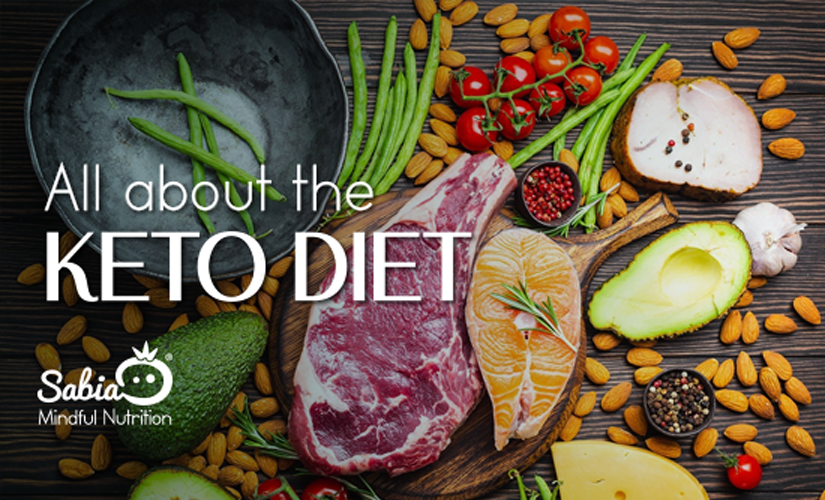Nutrition, Uncategorized
The Ketogenic Diet: A Comprehensive Guide to Weight Loss and Better Health
In recent years, the ketogenic diet, commonly known as the keto diet, has gained immense popularity among health enthusiasts and weight-loss seekers alike. This low-carb, high-fat eating plan has proven to be an effective approach to shedding excess pounds and improving overall well-being. In this comprehensive guide, we’ll delve into the fundamentals of the keto diet, its benefits, and practical tips for successful implementation.
Understanding the Ketogenic Diet The ketogenic diet is a nutritional approach that promotes a metabolic state called ketosis. In this state, the body primarily relies on fat as its primary fuel source instead of carbohydrates. By drastically reducing carbohydrate intake and increasing healthy fats, the body enters a state of ketosis, where it starts burning fat for energy, including stored body fat.
Benefits of the Ketogenic Diet
- Weight Loss: One of the primary benefits of the keto diet is its ability to support weight loss. By inducing ketosis, the body becomes more efficient at burning fat, leading to a reduction in overall body weight and decreased body fat percentage.
- Improved Blood Sugar Control: The keto diet has been shown to improve insulin sensitivity and blood sugar regulation, making it particularly beneficial for individuals with type 2 diabetes or those at risk of developing the condition.
- Enhanced Mental Clarity and Focus: Many individuals following a ketogenic diet report improved mental clarity, increased concentration, and better cognitive performance. This is attributed to the brain’s ability to utilize ketones as an alternative fuel source.
- Reduced Inflammation: The keto diet has been associated with a decrease in inflammation markers, which can contribute to the prevention and management of various chronic conditions, such as arthritis, heart disease, and certain types of cancer.

Getting Started with the Ketogenic Diet
Transitioning to a ketogenic lifestyle requires a significant dietary shift. Here are some essential steps to get you started:
- Reduce Carbohydrate Intake: The key to entering ketosis is to drastically reduce your carbohydrate intake. Most keto diets recommend consuming no more than 20-50 grams of net carbs per day, depending on individual factors.
- Increase Healthy Fat Consumption: To compensate for the reduced carb intake, you’ll need to increase your intake of healthy fats, such as avocados, nuts, seeds, olive oil, and fatty fish like salmon and mackerel.
- Moderate Protein Intake: While the keto diet is not a high-protein diet, it’s essential to consume adequate amounts of protein to maintain muscle mass and support overall health. Stick to moderate portions of lean meats, eggs, and low-carb dairy products.
- Stay Hydrated: Ketosis can lead to increased water loss, so it’s crucial to stay hydrated by drinking plenty of water and consuming electrolyte-rich beverages like bone broth or electrolyte supplements.
- Monitor Your Progress: Tracking your progress is essential for success on the keto diet. Regularly measure your body weight, body composition, and ketone levels (using urine or blood ketone meters) to ensure you’re in ketosis and achieving your desired results.
Incorporating the Ketogenic Diet into Your Lifestyle
Adopting the ketogenic diet requires a lifestyle change that extends beyond just what you eat. Here are some tips to help you seamlessly integrate the keto diet into your daily routine:
- Meal Planning and Preparation: Planning your meals in advance and preparing keto-friendly snacks and dishes can help you stay on track and avoid temptations.
- Dining Out: While it may seem challenging, it’s possible to dine out while following a ketogenic diet. Look for restaurants that offer low-carb options, such as bunless burgers, grilled meats, and vegetable-based dishes.
- Exercise and Activity: Regular exercise can complement the benefits of the keto diet by boosting metabolism, preserving muscle mass, and improving overall fitness.
- Support System: Surround yourself with a supportive network of friends, family, or an online community that understands and encourages your ketogenic lifestyle.
- Consult a Healthcare Professional: If you have any underlying medical conditions or concerns, it’s advisable to consult with a qualified healthcare professional before starting the keto diet.
The ketogenic diet has proven to be an effective approach to weight loss and improved overall health for many individuals. However, it’s essential to approach it with proper guidance, patience, and a long-term commitment to sustainable lifestyle changes. By understanding the principles of the keto diet and incorporating practical strategies, you can embark on a journey towards better health and well-being.



